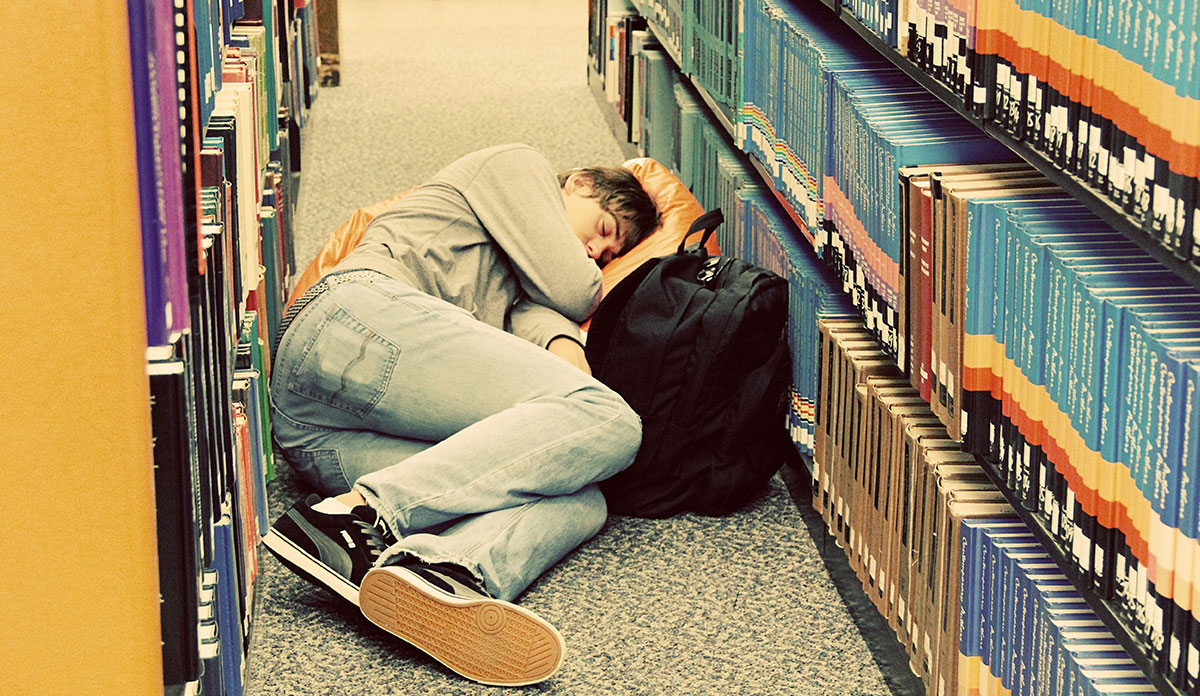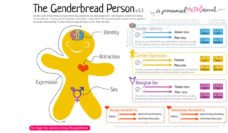First off, for the students reading this, take a deep breath. Put down the books for a moment. Take a walk. Drink some tea. Throw on some music. Chill out for a second.
Feel better? Good. Now here’s the most important part: if it’s after dark and your studies have stretched into the wee hours of the night, shut your laptop, put away your smartphone, and go to bed. PHP will be here in the morning.
Early December, with fall semester finals looming, is one of the most stressful times of year for college students, from newly-minted freshmen to public health PhD candidates and everyone in between. While stress is in many ways an unavoidable part of the higher education experience—if you aren’t feeling some kind stress during your academic career, you’re probably not truly challenging yourself—it can lead to a number of health problems. One of the easiest ways to fight stress and temper many of its ill effects is deceptively simple: get a good night’s sleep.
Young adults need about seven to eight hours of sleep a night, while teens can require at least an hour or two more. However, there is a wide body of evidence suggesting that sleep is one of the first casualties of a stressed college student’s lifestyle . Stress and lack of sleep, when combined, can form a vicious cycle: you lose sleep because of stress and then struggle to cope with stress because your physical and cognitive abilities are hampered by a lack of sleep.
A 2015 study by Teresa D. Valerio of Illinois State University documented the link between sleep, stress, and alcohol in college students. Using data from the American College Health Association’s National College Health Assessment–II survey, the study found strong links between stress, alcohol and cigarette use, general health conditions and quality sleep. In particular, students who reported significant amounts of stress found themselves feeling drowsy during the daytime hours, which the study noted has been linked in the past to further stress and further alcohol and drug consumption. The cycle continues.
There is also a well documented link between poor sleep and reduced academic performance. The solution for most college students seems simple: avoid the vicious cycle by getting better sleep. While this can be a tall order during exam season, there are a few recommendations that can help…
While there are numerous sources of stress throughout one’s college career, few have the universal impact of exam periods: times when all students are under an enormous amount of pressure to study hard and pass tests, often in several different subjects. A study from 2014 by Matthias Zunhammer of the University of Regensburg found that, in a cohort of 150 university students, the percentage of students reporting symptoms of poor sleep went up from 25.4% to 53.3% during exam periods compared to the rest of the school year. The exam period also saw increases in the use of alcohol, cigarettes, and caffeinated beverages, all of which can have negative effects on sleep quality.
According to the CDC, consequences of sleep deprivation can include difficulty completing everyday tasks and increased risks for chronic diseases such as diabetes, depression, and obesity. There is also a well-documented link between poor sleep and reduced academic performance. The solution for most college students seems simple: avoid the vicious cycle by getting better sleep. While this can be a tall order during exam season, there are a few recommendations that can help: Pick a consistent bedtime and stick to it as much as possible, even on weekends. Avoid midday naps. Use your bed only for sex and sleeping . Avoid late-night study sessions, especially those fueled by caffeine.
There are also things that colleges and universities can do to help their students keep stress at bay—and hopefully sleep soundly—during finals season. Many schools offer guides with advice to help both students and faculty manage work and avoid stress, as well as campus health services for when they need support from heath providers. Others have pursued more creative solutions, including deploying therapy dogs on campus, organizing a mass, stress-relieving primal scream, and even allowing an—admittedly unsanctioned—tradition in which students hand out donuts to library-bound studiers—in the nude.
Featured Image: clemsonunivlibrary, So, so sleepy… (detail), used under CC BY NC 2.0













